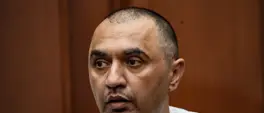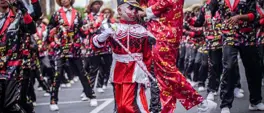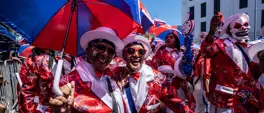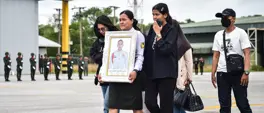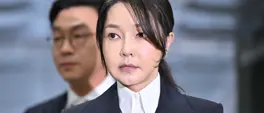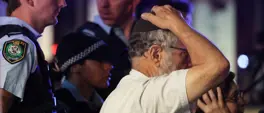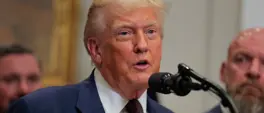Thailand's Thaksin indicted for insulting monarchy
AFP
18 June 2024 | 7:55The case against the 74-year-old billionaire, twice elected premier and ousted in a 2006 military putsch, is one of four before the courts that could unleash fresh political instability in the coup-prone kingdom.
BANGKOK - Thai prosecutors on Tuesday formally indicted influential former prime minister Thaksin Shinawatra under the kingdom's strict royal insult laws over comments he made nearly a decade ago.
The case against the 74-year-old billionaire, twice elected premier and ousted in a 2006 military putsch, is one of four before the courts that could unleash fresh political instability in the coup-prone kingdom.
Thaksin, the patriarch of the Pheu Thai party that leads the coalition government, appeared at Bangkok's Ratchada Criminal Court accused of lèse-majesté over an interview he gave to South Korean media in 2015.
"Today a state prosecutor indicted Thaksin Shinawatra and the court accepted the case," the attorney general's office said in a statement.
Thailand has some of the world's strictest royal defamation laws protecting King Maha Vajiralongkorn and his close family, with each charge bringing a potential 15-year prison sentence.
Thaksin was also charged under the Computer Crimes Act, which can carry a jail sentence of up to five years.
His lawyer Winyat Chatmontree said Thaksin denied all charges and had "no intention of speaking about anyone protected by article 112" - a reference to the section of the criminal code dealing with lèse-majesté.
The former Manchester City owner was granted bail on a 500,000-baht ($13,500) bond and ordered not to leave the country without permission, court officials said.
The next hearing in the case is scheduled for 19 August.
SENSITIVE CASES
Critics say the lèse-majesté laws are misused to stifle legitimate political debate, and there has been a spike in their use since youth-led anti-government street protests in 2020 and 2021.
Thaksin is the biggest name among the more than 270 people charged under the laws since the protests, according to Thai Lawyers for Human Rights, a legal group that handles many cases.
Thaksin's case came on the same day the Constitutional Court deliberated on three other cases that could spark a political crisis.
One seeks the ouster of Prime Minister Srettha Thavisin under ethics rules, over the appointment of a cabinet minister with a criminal conviction.
In another, the election commission is seeking the dissolution of the main opposition Move Forward Party (MFP), which won most seats at last year's general election but was blocked from forming the government.
The court said it would sit again in the MFP case on 3 July and in the Srettha case on 10 July.
In a third case, the Constitutional Court ruled that the ongoing election for a new senate is lawful, throwing out a challenge that sought its postponement or cancellation.
BUFFER OR HOSTAGE?
For two decades, Thai politics has been dominated by a struggle between the conservative military pro-royalist elite and progressive parties - first those of Thaksin and his allies and now the MFP.
Thaksin returned to Thailand last August from 15 years in self-exile on the same day Srettha took power in an alliance with pro-military parties previously bitterly opposed to Thaksin and his followers.
The timing seemed to suggest a truce in the long-running tussle as both sides sought to see off the threat posed by MFP.
But the Constitutional Court cases could rip any such deal apart, and Thaksin has hinted that he believes the lèse-majesté allegations are an establishment ruse to undermine him and Srettha's government.
"I think the latest developments signal that he is still somewhere between a political mastermind and a hostage," political analyst Napon Jatusripitak of the ISEAS-Yusof Ishak Institute in Singapore told AFP.
"He still finds being used as a buffer by the establishment against popular pro-democracy movements coming from below."
Get the whole picture 💡
Take a look at the topic timeline for all related articles.


